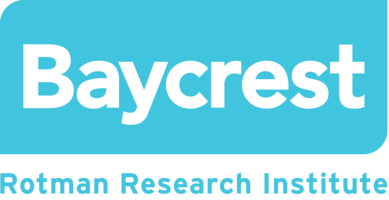Current Research Chair Positions
There are currently no open research chair positions. Please check again later.
Archived Research Chair Positions (CLOSED)
University of Calgary: Tier II Canada Research Chair, Neurodevelopmental Disabilities

Located in Canada’s most enterprising city, the traditional territory of the peoples of Treaty 7 and Region 3 of the Métis Nation of Alberta, the University of Calgary (UCalgary) is a global and innovative intellectual hub for teaching and learning, research and scholarship, and community engagement.
UCalgary is one of Canada’s top comprehensive research universities, with more than 6,500 graduate students and 28,500 undergraduate students, more than 1,800 academic staff (continuing, contingent term or limited term appointment), more than 1,300 sessionals, and more than 3,200 non-academic staff, in 14 Faculties, across five campuses. The vibrant and research-intensive environment at UCalgary is home to 146 research chairs (75 Canada Research Chairs), and more than 50 research institutes and centres. UCalgary has the fastest growth rate in attracting research funding among the 10 largest universities in Canada.
The university’s new Framework for Growth establishes principles and focus areas for the University of Calgary over the coming decade. It will ignite our entrepreneurial spirit to turn challenges into opportunities to improve the world around us. It will help to meet our academic and research ambitions and strengthen our community engagement in one of Canada’s most diverse cities, whose exciting future is unfolding rapidly, and where scientific disciplines will play a major role. Built around three big ideas (transdisciplinary scholarship, integration with our community and future-focused program delivery), the Framework will distinguish the university and drive growth.
To learn more about this vision please see: https://www.ucalgary.ca/president/growth
UCalgary’s Werklund School of Education supports interprofessional and community-based enquiry from multiple perspectives in the generation and application of knowledge to social and individual change. Our goal is to be a national leader in knowledge creation and application of this knowledge to solve some of society's most pressing social issues. The Werklund School of Education has become known as a change leader in its field. We offer research-informed and active on-campus, online and community-based graduate and undergraduate programs, conduct purposeful research, and enable community-engaged knowledge exchange. With over 2,500 students, 28,000 alumni in 77 countries and 160 academic and support staff, we lead and advance research and theory that influences educational policy and professional practice for current and future generations.
For more information about the Werklund School of Education visit our website: https://werklund.ucalgary.ca/
The Werklund School of Education at the University of Calgary invites applications for a Tier II Canada Research Chair (CRC) in Neurodevelopmental Disabilities in Young Adults. The successful candidate will be appointed at the rank of Assistant Professor (tenure-track) or Associate Professor (with tenure) and will be nominated for a CRC Tier II position.
The CRC may involve conducting research on: 1) creating individualized supports integrating education and public health; 2) evaluating the effectiveness of a universal design for learning framework in post-secondary; 3) implementing innovative interventions that promote mental health and build independence (e.g., peer mentorship, self-advocacy); 4) implementing a transition program for individuals transitioning in and out of post-secondary education; and 5) providing scholarly support for teaching and learning interventions.
In addition to maintaining an active funded research program, the Chair also will be expected to supervise graduate students, teach undergraduate and/or graduate courses in their areas of specialization and demonstrate leadership in service, collaboration and mentorship within the University and the community. As well, the Chair will be expected to engage actively with the public and the media in matters related to the Chair.
The successful candidate at the Assistant Professor level must demonstrate evidence of a track record of publications in high quality journals, securing external research funding, and effectiveness in teaching at the university level.
The successful candidate at the Associate Professor level must demonstrate evidence of a strong track record of publications in high quality journals, evidence of securing ongoing external research funding, effectiveness in teaching at the university level, and evidence of effective graduate student supervision.
The position provides an opportunity to establish a vigorous, sustainable, externally funded research program in the area of neurodevelopmental disabilities, contribute to teaching and graduate student supervision, and participate in leadership of related research, education and service. This is an excellent opportunity to build and develop an innovative research program within a dynamic and collaborative environment. A competitive salary and an attractive start-up package will be provided.
The successful candidate will hold a completed doctorate in neurodevelopment disorders or related discipline in an area of specialization relevant to the Chair. Preference will be given to candidates whose research focuses on targeted and integrated interventions and supports for emerging adults with neurodevelopmental disabilities to ensure a successful transition. The CRC will bring additional knowledge and solutions to systemic challenges that emerging adults face every day. This CRC, focused on emerging adults with neurodevelopment disabilities, will meet the CIHR goals of improving the health of the Canadian population specifically in developing a better understanding of social, cultural, educational, environmental, occupational and economic factors that influence the successful integration and transition of emerging adults in the workforce.
The Canada Research Chair Program
The Canada Research Chairs Program stands at the centre of a national strategy to make Canada one of the world’s top countries in research and development. It invests approximately $295 million per year to attract and retain a diverse cadre of world-class researchers, to reinforce academic research and training excellence in Canadian postsecondary institutions.
Tier II Chairs are tenable for five years and renewable once. Tier II Chairs are intended for exceptional emerging scholars (i.e., candidates must have been an active researcher in their field for fewer than 10 years at the time of nomination). Candidates who are more than 10 years from having earned their highest degree and who have had career breaks, such as maternity, parental, or extended sick leave, clinical training, and research interruptions due to the COVID-19 pandemic etc., may have their eligibility for a Tier II Chair assessed through the program's Tier II justification process.
Please contact University of Calgary's Office of Research Services for more information: ipd@ucalgary.ca. Further information about the Canada Research Chairs Program can be found on the Government of Canada's CRC website, including eligibility criteria: https://www.chairs-chaires.gc.ca/home-accueil-eng.aspx
To Apply
Interested individuals are encouraged to submit an application online via the UCalgary Careers site: https://careers.ucalgary.ca/jobs/10073278-canada-research-chair-tier-ii-neurodevelopmental-disabilities-in-young-adults-werklund-school-of-education
Please be aware the application process allows for only two attachments – cover letter and curriculum vitae.
Questions about this position may be directed to: UofC-CRC-NDYA@jssearch.ca
The University of Calgary recognizes that candidates have varying career paths and that career interruptions can be part of an excellent academic record. Candidates are encouraged but not required to provide any relevant information about their experience and/or career interruptions to allow for a fair assessment of their application. Selection committees have been instructed to give careful consideration, and be sensitive to, the impact of career interruptions, when assessing the candidate's research productivity.
The University of Calgary recognizes that a diverse staff/faculty benefits and enriches the work, learning and research experiences of the entire campus and greater community. We are committed to removing barriers that have been historically encountered by some people in our society. We strive to recruit individuals who will further enhance our diversity and will support their academic and professional success while they are here; in particular, we encourage members of equity-deserving groups (women, Indigenous Peoples, persons with disabilities, members of visible minorities and diverse sexual orientation and gender identities) to apply. All qualified candidates are encouraged to apply; however Canadians and permanent residents will be given priority. To ensure a fair and equitable assessment, we offer accommodation at any stage during the recruitment process to applicants with disabilities. Questions regarding diversity or requests for accommodation can be sent to Human Resources (hrhire@ucalgary.ca).
Calgary
Recently ranked the 3rd most liveable city in the world (2022) by The Economist Intelligence Unit, and possessing one of the youngest populations of major cities in Canada, Calgary is home to world-class attractions, sporting amenities and public infrastructure that supports a healthy lifestyle, making it a great place to raise a family (https://www.youtube.com/channel/UCnh-WugziiiHwMT44-sVwrA). Situated where the Canadian plains reach the sunny foothills of Canada’s majestic Rocky Mountains, Calgary is a major urban centre surrounded by an area of profound beauty with an awe-inspiring mountains, lakes, rivers and gorgeous prairie.
Consistently rated by the United Nations as the world’s best country to live in, Canada is the world’s second largest country by total area and is one of the most ethnically diverse and multicultural nations. Canada ranks among the highest in international measurements of government transparency, civil liberties, quality of life, economic freedom, and education.
Rotman Research Institute: Two Positions

Baycrest’s Rotman Research Institute, which is fully affiliated with the University of Toronto, seeks applicants for TWO positions:
1) Canada Excellence Research Chair (CERC) in Predictive Neuroscience for Precision Aging
Both roles are are open in terms of discipline and focus, as long as there is a connection to our broad areas of focus in aging research: sensory and cognitive neuroscience, computational neuroscience and neuroinformatics, aging and brain health, and/or Alzheimer’s disease, related dementias, and neurodegeneration.
Both positions would be based at Baycrest’s Rotman Research Institute which is fully affiliated with the University of Toronto, both are exceptional locations for advancing research: Baycrest is the #1 most research-intensive hospital in Canada, and UT is Canada’s #1 ranked university. Because the roles are at the RRI, unlike typical University appointments, the focus is on research rather than formal teaching (e.g., most Scientists teach one graduate course every 4 years), although all Scientists contribute to UT’s educational mission by supervising and mentoring students, postdocs, and other trainees.
1) We have an opportunity to recruit a Canada Excellence Research Chair (CERC) in Predictive Neuroscience for Precision Aging, valued at $1M per year for eight years (with additional funding to continue the role beyond the initial CERC funding). The proposed CERC budget would be developed with the nominee, and may include additional junior faculty positions depending on the needs and interests of the nominated CERC. Given the requirements of the Canada Excellence Research Chair program, most CERC nominations are for individuals not currently employed within Canada, and CERCs are not required to have Canadian citizenship or residency status at the time of nomination. However UT and the CERC may consider individuals from within Canada under exceptional circumstances.
2) We also are looking for a Senior Scientist to lead the Scientific and Academic portfolio within the RRI. In addition to the leadership role of Executive Director, the appointee would hold the Reva James Leeds Chair in Neuroscience and Research Leadership. The appointee will be a member of the Executive Team for the newly formed Baycrest Academy for Research and Education at Baycrest Centre for Geriatric Care, advancing research across the RRI while also advancing their own research program. There are no nationality requirements on this role (could be Canadian or international).
Concordia University: Canadian Excellence Research Chair, Empowered Aging

|
Ryerson University: CIHR Tier 1 CRC, Sex, Gender, and Diversity in Brain Health, Cognition, and Aging

Based in the Department of Psychology at Ryerson University, the successful candidate will have a program of research in the cognitive neuroscience of aging, with a demonstrated focus on dimensions of diversity including, but not limited to, sex, gender, socioeconomic status, and race/ethnicity. The Chair will demonstrate a commitment to generating knowledge that informs translatable, evidence-based approaches to support cognitive and brain health in middle-aged and older Canadians. The CRC will also catalyze Ryerson University’s Strategic Research Plan (2020-25) thematic priorities of Health and Wellbeing as well as Justice, Equity, and Society, given the documented sex, gender and socioeconomic disparities in dementia risk. Full details can be found at https://hr.cf.ryerson.ca/ams/faculty/preview.cfm?posting_id=543326
Concordia University: Canada Research Chair Tier II

This tenure-track position is for a Canadian Institutes of Health Research (CIHR) Canada Research Chair Tier II in Connected Digital Health to Transform Health-Equity among Marginalized Populations. The area of connected digital health is an emerging strength at Concordia and a key component to precision health by providing reliable, efficient, and accessible approaches to measure health-related psychophysiological processes and outcomes and to deliver services. This position is at the intersection of three domains: (i) digital health, (ii) marginalized populations, and (iii) psychophysiology.
Candidates who innovatively create and implement empirical, state-of-the-art digital health applications with marginalized populations are strongly encouraged to apply. Digital health applications using wearables (commercially available or user-developed), smartphones, remote sensing, or mobile apps should pertain to a quantifiable psychophysiological signal (e.g., brain activity EEG, heart activity EKG, muscle activity EMG, eye tracking, movement (accelerometry), facial expression (emotion), social interactions (proximity), or built environment interactions (GPS), among others). Research involving any marginalized community(ies) or individual(s) will be considered. This could include, but is not limited to, homeless individuals, Indigenous peoples, immigrants and refugees, ethnoracial minorities, sexual and gender minorities, people living in poverty, or those living with mental illnesses, chronic diseases, or disabling conditions. Health applications are broadly defined and may target assessment, intervention, or prevention (primary to tertiary) at the individual or population level.
Possible wide-ranging health research areas could include: access to mental health services; substance abuse; adolescent suicide prevention; concussion; PTSD; migraine and tension headaches; sleep disorders, employee workplace stress and well-being; autism; stress disorders; obesity; communication; vision impairments; driver road aggression, among many others.
Details on the hiring process, including Qualifications, assets, and adaptive measures are located on the following website:

